BRAND STORY
Vegan wines – an interview with the Weber brothers

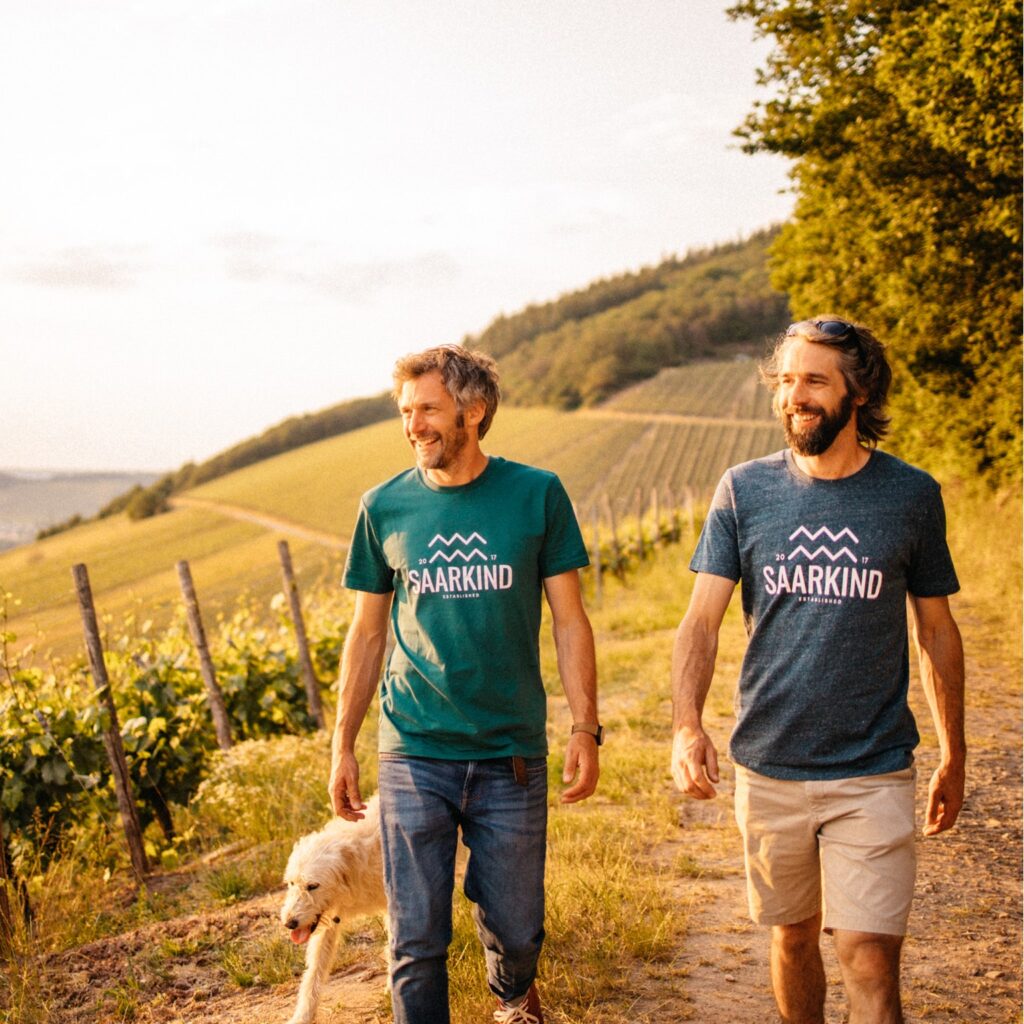
As foliage everywhere gradually turns to reveal vibrant colours, the days get shorter and the light more autumnal, wine regions everywhere prepare to commence their labour-intensive grape harvest. This is the highpoint of a winemaker’s year. There’s a buzz in the landscape. This is when you see winemakers hard at work in wine regions everywhere. Hardly surprising given that this is when they reap their harvests. This is the moment of truth for all wine enthusiasts… will it be a good vintage?
Today we want to introduce you to the Weber brothers and their winery on the Saar. We were so impressed with their products and their philosophy that we decided to add them to our range. What better reason for us to chat to the brothers and reflect on all things vegan wine…
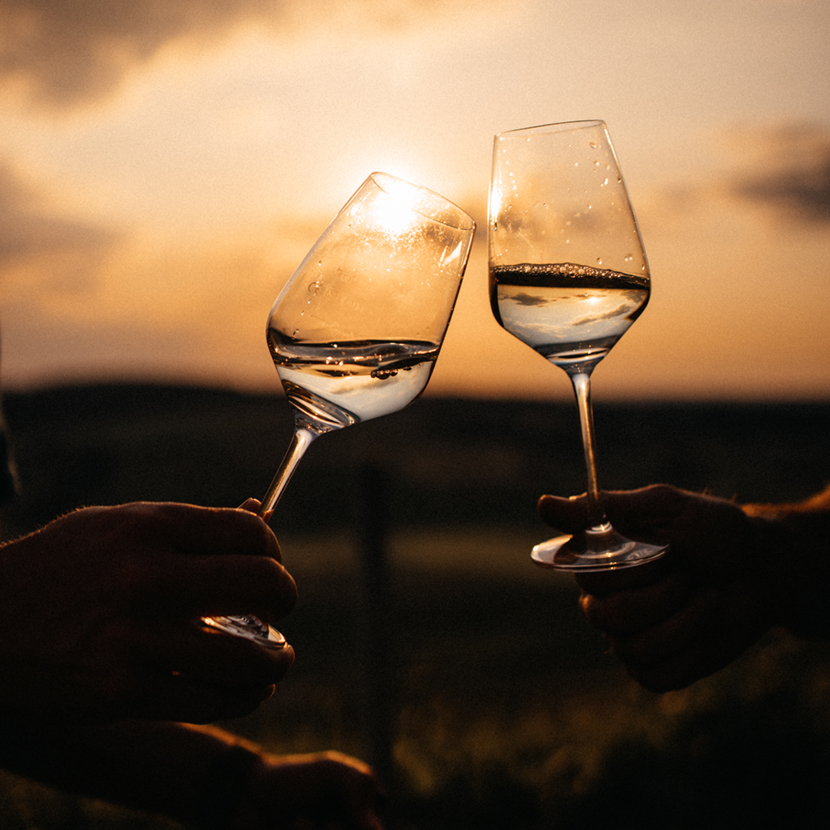
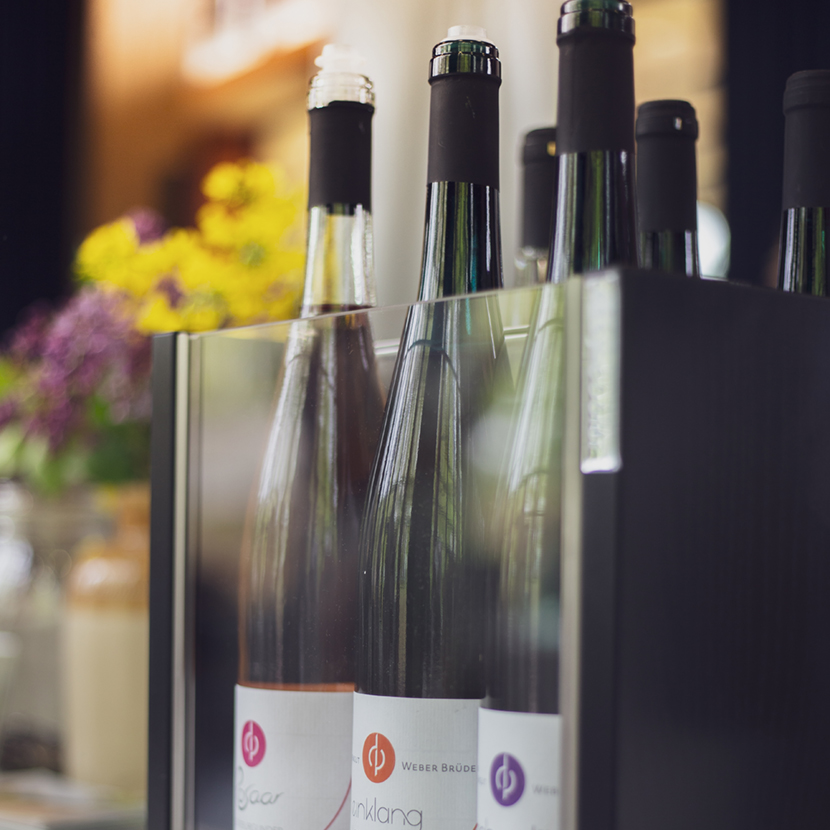
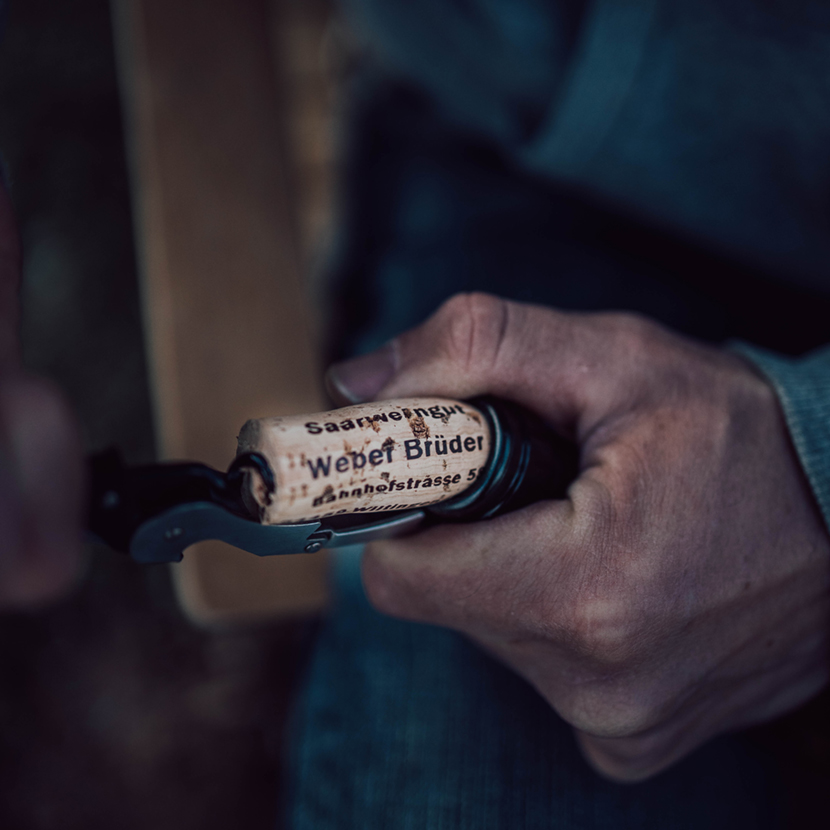
Why wine isn’t necessarily always vegan
When you think of wine, you’d be forgiven for thinking they’re all vegan anyway. We asked oenologist Milena Ernstberger why that isn’t necessarily always the case. This was her response:
“A range of different additives are used in winemaking. For example, gelatine was once used to clarify wine, and adhesives containing cheese used to glue labels onto bottles.
Thankfully the process of making wine has completely changed. Many winemakers use products like bentonite (a clay mineral) during the clarification process and cheese-free products for gluing labels. But if you want to play it safe, buy wines with a vegan label.
You can generally rest assured that no additives of animal origin are used in vegan winemaking.
We find out how the Weber brothers do it at their vineyard on the Saar.
“WWW” – Weber Wine from Wiltingen
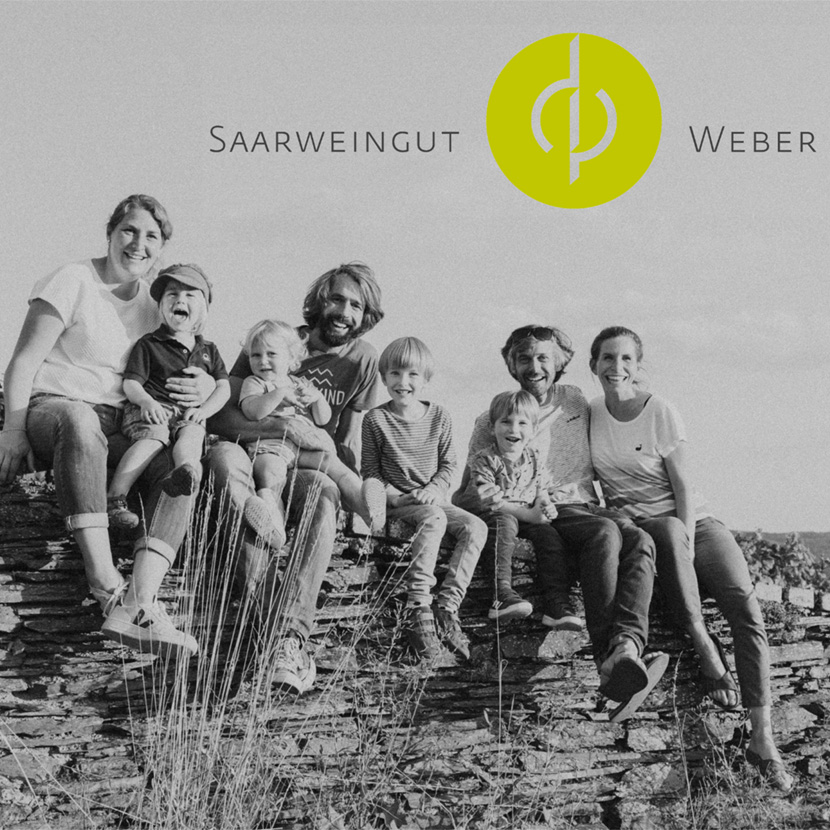
The affable Weber brothers and their vegan wines have made a name for themselves throughout the region and beyond. Stephan and Michael Weber run their winery with equal parts skill and dedication in Wiltingen on the Saar. Wiltingen is a small wine region rich in fine wines just waiting to be discovered. Life as a young winemaker sounds pretty exciting to us, but what exactly does it entail these days? Michael Weber has agreed to give us some insight.
VELIVERY: What is the story behind your winery? Is it a family tradition?
MICHAEL WEBER: First of all, a note on where our vineyard is: it might sound confusing, but although we are located on the Saar, the wine production in this area falls under the region of Rhineland-Palatinate, whereas winegrowing in Saarland falls 100% within the Moselle region.
But on to our story: our grandparents ran a small subsistence farm comprising 1.5 hectares of vineyards. In the 1960s, the bottled wine company closed, and they started producing grapes for the local cooperative.
Winegrowing was always an extended family affair and that was what piqued mine and Stephan’s interest in the sector early on. Then we both left to study in Geisenheim. Stephan studied International Wine Business and I studied Winegrowing and Oenology. After a few years abroad (Portugal, France, Australia and the USA), I returned to Germany, to my homeland. It was my experiences in the USA in particular that led me to appreciate the original way of making wine more and more. That was something I wanted to return to.
By that time, the family-owned wine-growing land had been divided up and our father granted us the use of 2,500 square metres in the Wiltinger Klosterberg region. In 2013 Stephan and I decided to stop selling grapes to the cooperative. We made our first 1,000 bottles for our own use and for family and friends.
It was an arduous journey because we didn’t have a vineyard, a press or a tractor either; but the sell-off did go well. Then we grew healthily with demand, buying up or leasing old vineyards. In 2018 we were named as THE new discovery in the Vinum Wine Guide. Today we cultivate four hectares and produce between 15,000 and 20,000 bottles.
VELIVERY: Your long family story is impressive, but surely some things have changed in winegrowing since the time of your forefathers. What philosophy guides you and your brother today? What part do factors like soil, grape varieties and the region play?
MICHAEL WEBER: A lot has changed, but we concentrate on traditional viticulture – that coupled with modern-day knowledge. We launched the “Weber Brüder” project because we wanted to get the best out of our vineyard in Wiltinger Klosterberg and do the location and the vintage justice in the process. Right from the outset we decided to ferment the wines spontaneously, i.e. with the yeast by-product from the vineyard. This sees the fermentation left to happen by itself. True to the motto “Less is more”, we don’t subject the must to any additional wine treatment agents. This mean our wines are vegan, too. A long yeast storage period extending right into summer keeps the wines stable, so we don’t bottle it until late summer.
We also quickly decided to refrain from using any herbicides in our winegrowing process in order to preserve the vibrant ecosystem. We have been producing wine in line with organic guidelines since 2016 and, since then, our wines have become even more refined. 90% of our vines are of the Riesling variety, 5% Pinot Blanc and 5% Pinot Noir. Riesling is the most versatile type of grape, since its complexity appeals to a very wide range of tastes.
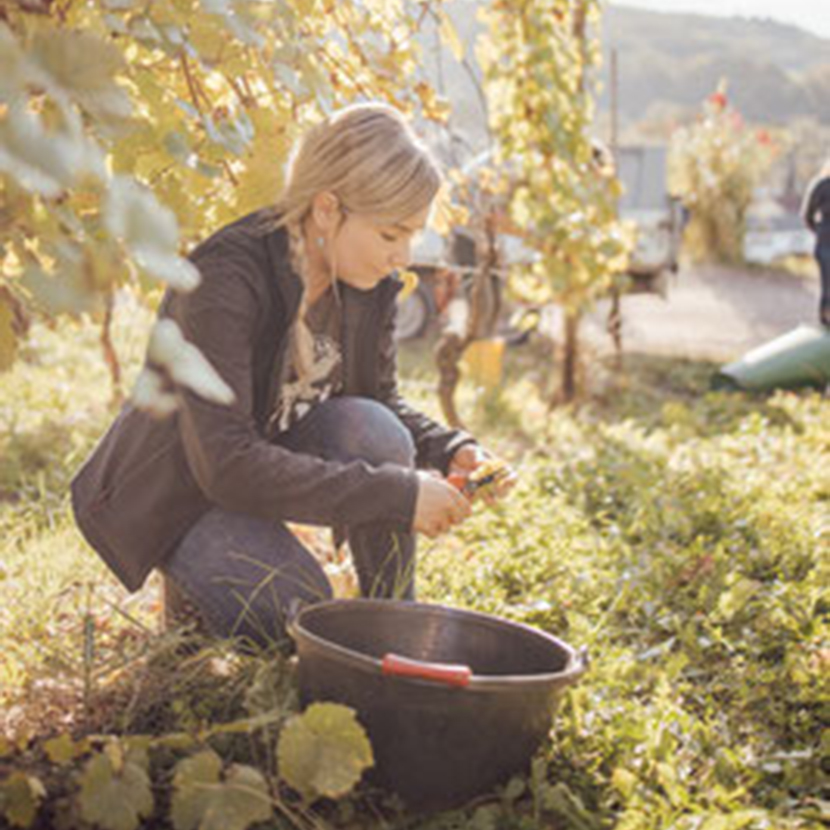
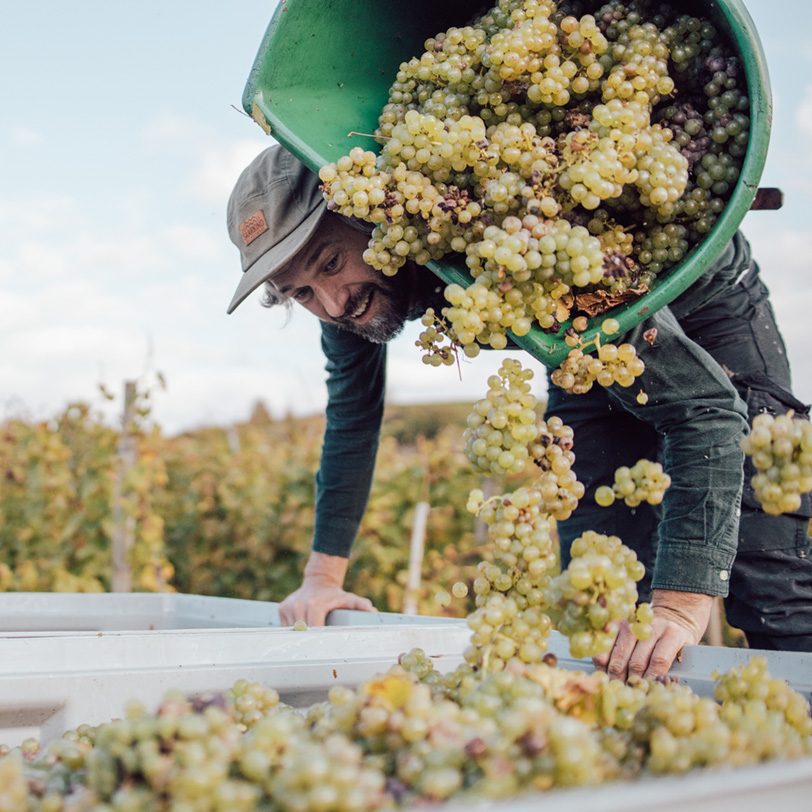
VELIVERY: What makes the Weber Brother’s wines special?
MICHAEL WEBER: Our wines are authentic Saar wines that really highlight the individual layers with all of their saltiness, minerality, fruit and their balance of sweetness and acidity.
VELIVERY: Between the vineyards, the cellar and everything else, the workload in the company must be never-ending. Who does what out of both of you? What do winemakers like you two get up to over the course of the year? And how big is your team?
MICHAEL WEBER: That’s a very good question. And yes, there’s always plenty to do, particularly since we run the business as a sideline. Four hectares is the extent of what we can cultivate in a model like this. Our team is made up primarily of us brothers and our father, but no agricultural family works without the support of the whole family. That includes our wives, grandmother, friends and of course our children, who always work hard to help us out.
Stephan and I operate on the same wavelength and understand exactly how the other thinks and feels about winegrowing and the taste of the wine. For that reason we have no set way of dividing work up between us – whoever gets there first, does whatever is necessary.
When it comes to the pruning work in summer, and in the autumn, we have an additional helping hand in the form of our seasonal workers who help us to reap our entire harvest by hand, for example.
VELIVERY: And what work starts now in autumn?
MICHAEL WEBER: We are just about to commence the 2023 grape harvest. Our crop pickers will arrive on the 25th of September, then the harvest will begin. So far, it’s been a good year, with lots of sun and beautiful grapes. The rains over the past few weeks were important for the soil, but now we’re under pressure to get the harvest done quickly because the ripe grapes could rot fast with the abundant moisture. When you work with nature, it’s always a thrill right to the end 🙂
VELIVERY: Can your Velivery fans come and see for themselves? Or taste your wines? What options are there?
MICHAEL WEBER: We always love meeting interested wine & Velivery fans. There are a few different ways to meet us – at our winery of course, but we also do a number of different wine events over the course of the year. In summer we serve our wine at countless wine festivals. One wine festival we run together with our Saarkind winemakers is the “Klang und Glanz Festival” on the banks of the Saar in Wiltingen, which is always on the first weekend of August. Once a month we also offer a wine hike to the Wiltingen Galgenberg with wine tasting and a cheeseboard. This wine hike leaves no wine question unanswered. You can find dates at www.weinwanderung-saar.de
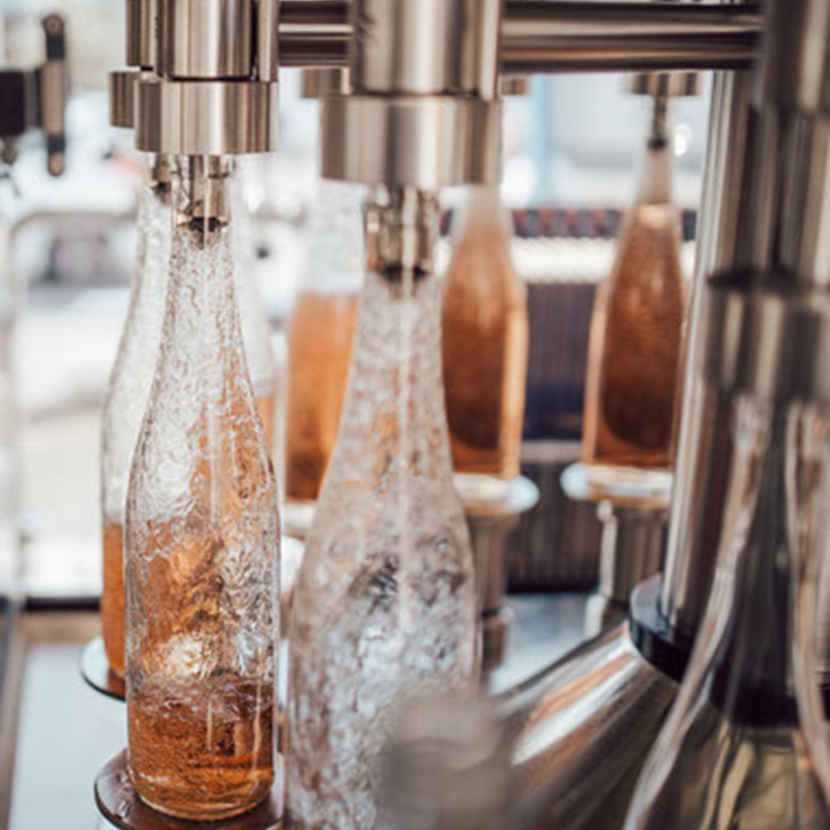
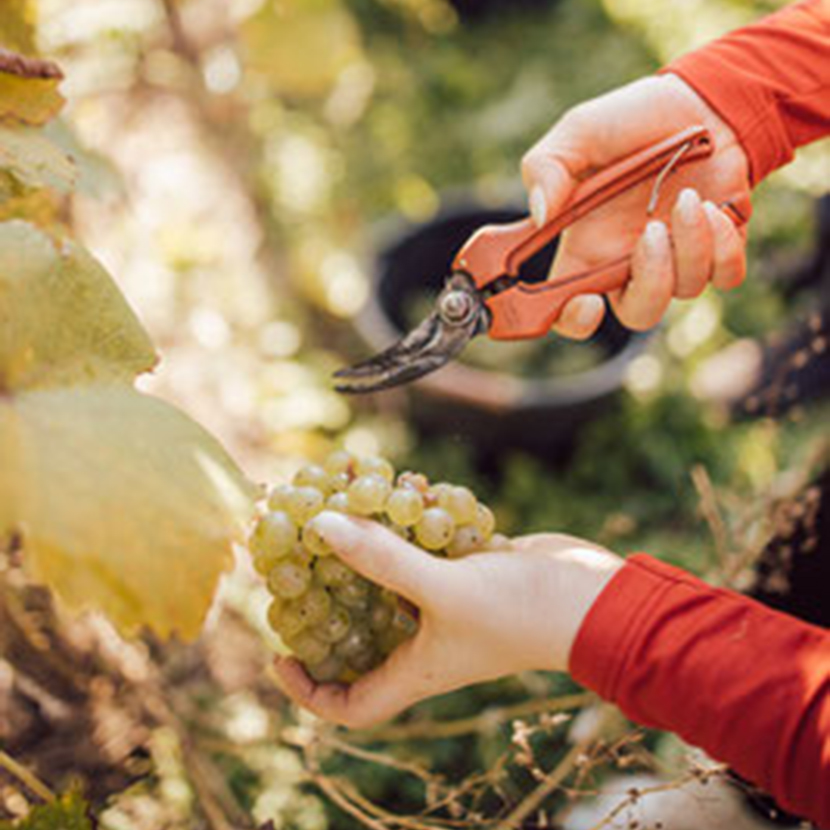
VELIVERY: Tell us a little bit about the wines you press. And why aren’t all wines vegan anyway? And what motivated you to stick to vegan wines?
MICHAEL WEBER: We see wine as a natural product, a signature, a craft that can be assisted by science. As a natural product, wine needs to be given time to develop. Thanks to the slower spontaneous fermentation of selected grapes and the extended yeast contact following fermentation, we can forego wine treatment agents, specifically those of animal origin. As such, we primarily sell ripened wines to buy ourselves the time our wines need, without succumbing to the pressure of demand for the next vintage.
The fact that not all wines are vegan is down to the technical conditions of the businesses, the price structure of the wines and, of course, the market demand for the new wine.
VELIVERY: Is there anything else you want to share with our wine-enthusiast readers?
MICHAEL WEBER: Sample your way through the German wine landscape, there is just so much to discover!
VELIVERY: Thanks so much for talking to us!
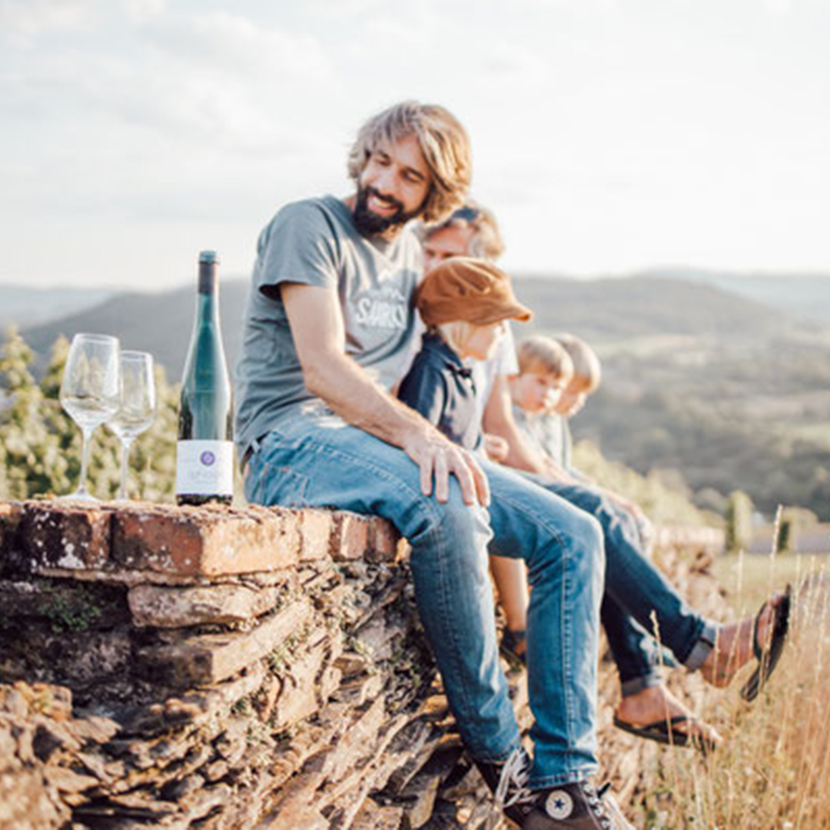
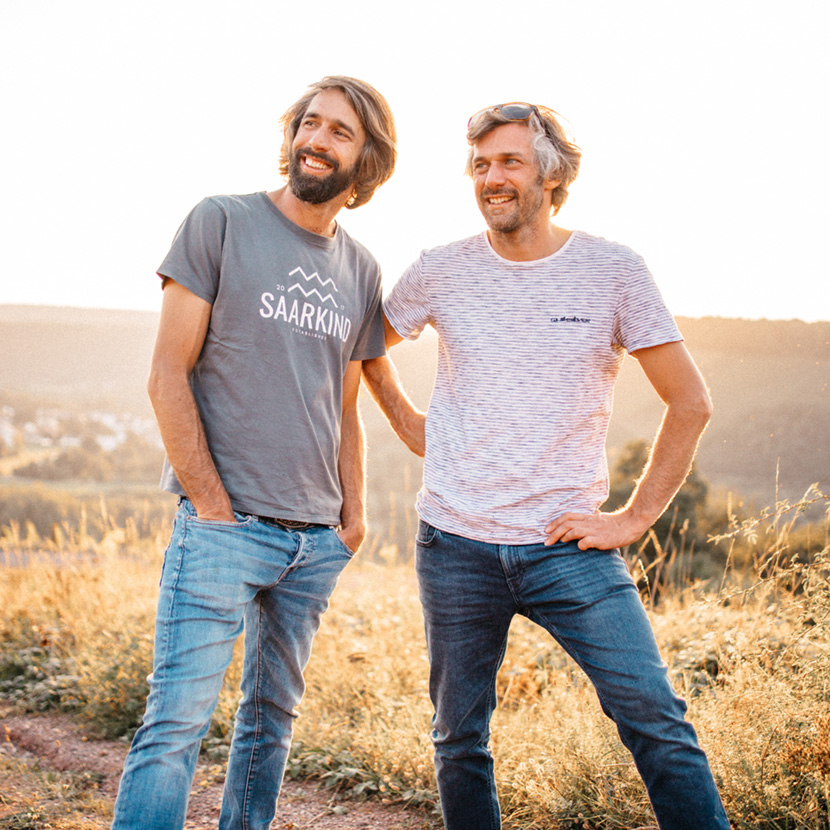
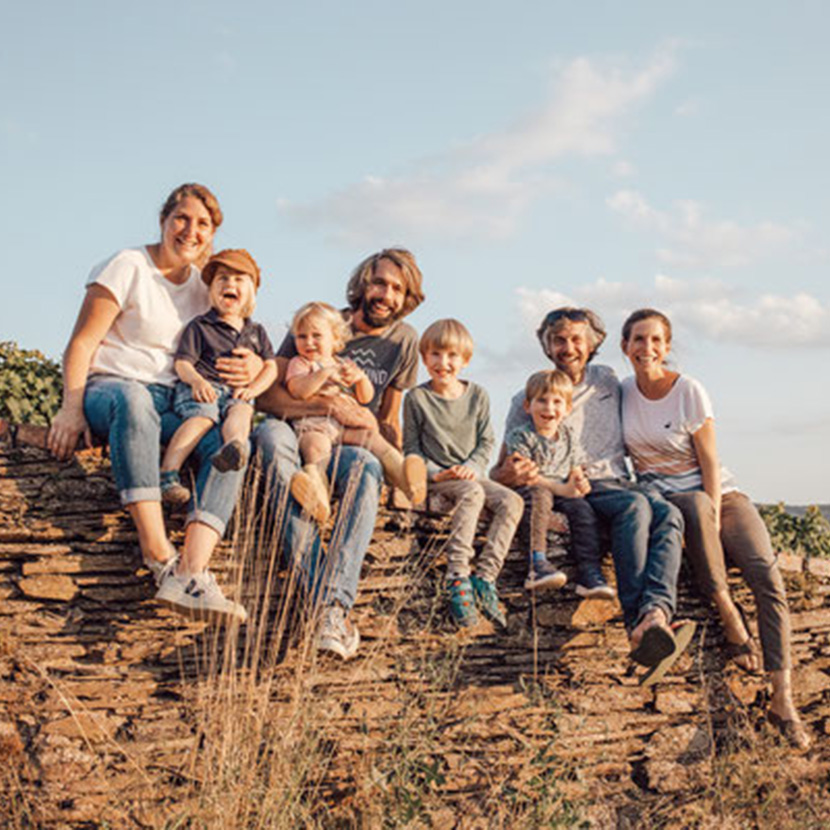
That’s got us in the mood for a little wine tasting. You too? You can try Weber Brothers’ Kabinett Wiltinger Klosterberg and Adonis Wiltinger Rosenberg at Velivery. Find out how well wine works in cooking with heavenly recipe ideas like this red wine risotto or red wine pears with crème brûlée. And it goes without saying that vegan wines taste fantastic with cheese alternatives. Autumn doesn’t get much better than this!















